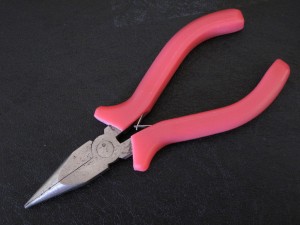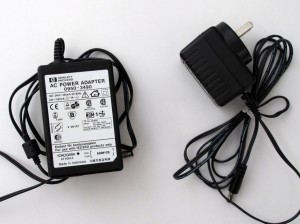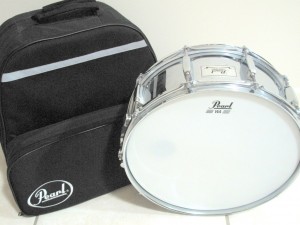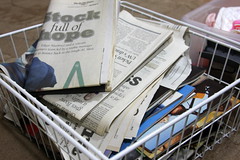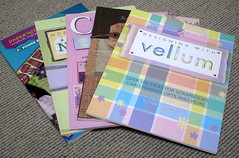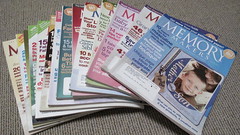Cindy’s Weekly Wisdom ~ Are You Hanging on to Too Many Papers?
According to a survey I saw recently, 67% of people said that paper clutter is their hardest area to deal with. Who knows if this is truly accurate, but I’m going to assume that it means that a lot of people, possibly including you, are having trouble dealing with paper.
I think there are a couple of fundamental mistakes that people make regarding paper:
- Believing that every piece of paper is important or has the potential to be important
- Believing that if a piece of paper was important at one time, it’s important forever
- Not intentionally minimizing the amount of paper that enters your life, and
- Leaving paper for another day
Let’s deal with these one by one.
1. Every piece of paper is not important. You do not have to read sale ads for shops where you do not shop. You don’t even have to read the sale ads for where you do shop. Bills, once paid, do not need to be kept. Magazine that have been sitting by your chair for six months are clutter, not a treasure. Newspapers more than one or two days old are recycling. Another one is coming today, I promise.
2. Just because a piece of paper was once important doesn’t mean that it continues to be important. I’ll confess, sometimes my desk backs up, just like everyone else’s. It amazes me how many of those once important papers are no longer important once I get around to sorting them: coupons are now invalid, a new bill has come to supplant this one, a receipt for a shirt you thought you might return but have now worn twice, an announcement for a talent show that occurred last month: none of these are important any more. Even papers related to buying a house can be shredded once you’ve refinanced the loan or purchased another house. Your tax papers only need to be kept for 7 years, at the longest. (You can get more specifics at the IRS website.)Â Every year, you can shred one more year’s worth of tax forms (in the U.S. only; I don’t know about other countries).
3. I’m sure there are more junk mail and more school papers floating around now than there were a dozen years ago. You need to do your very best to stem the tide before it reaches your home.
- Aggressively take your name off mailing lists for catalogs and other regular mailings that you do not care to get. All catalogs contain an 800 number; call them. You will not hurt the feelings of the operator for asking to have your name taken off their mailing list.
- You can return a charity solicitation in the envelope they send you after you write “please take my name off your mailing list” on the solicitation form. If you feel bad about doing this, put your own stamp on the envelope. I donate annually to two charities through my church. I will donate to them every year, and I know that I will not donate to them at any other time. Every year when I write my check, I write “Please do not add my name to your mailing list.” Why should they waste their time soliciting me when I know I’m not going to give? This helps both of us.
- Stop receiving pre-approved credit card offers by using this free service, which was established under the Fair Credit Reporting Act (U.S. only).
- The Direct Marketing Association’s (DMA) Mail Preference Service (MPS) lets you opt out of receiving unsolicited commercial mail from many national companies for five years (U.S. only).
- This privacy website has more information on more specialized cases, such a the ValPak you may be getting weekly (Again, U.S. only).
- To get off the mailing list of small local companies, like the real estate agent you met last week, you’ll have to email or snail mail them directly. Clip the label off the mailing and include it if you contact them by snail mail. Extra postcards you own are good for this type of correspondence.
- Politely refuse business cards, fliers, and appointment cards that are offered to you. Write important information directly into your appointment book, address book, or smart phone, and bypass the paper all together.
- Enter the relevant information for important announcements for work or school directly into the same locations (appointment book, smart phone, etc.) so you’re never searching your desk for a vital piece of information on an un-vital piece of paper.
- Switch as many bills as possible over to email delivery. There’s no need for you to receive paper bills any more, and they’re easier to track on your computer anyway.
- Really consider the mailings you willing let in your home. Do you want the newsletter from the national branch of your church even if you’re a faithful church attendee? How many magazines should you subscribe to? Is there an on-line version instead? If you never manage to read the newspaper, stop your subscription. You may love to shop at Ikea, but do you really need to get their monthly catalog? You know how to find them on-line if you want to see what they have.
4. The last mistake people make is leaving their papers to another day. When you bring in a stack of papers from the car or the mailbox, you should deal with it promptly. At a minimum, junk goes right into the recycling bin. (Yes, even after you do the above steps, there will still be some junk.) Bills are opened and appropriate reminders to pay noted. Personal letters are opened. Envelopes go into the recycling. There’s a place for everything and everything in it’s place, and that place is not a big heap on your entry table, kitchen counter or desk.
Paper is a tool for relaying information; manage it wisely, so it doesn’t manage you.
Today’s Declutter Item
Lena will be pleased to see I have found another craft item to declutter. There are still plenty of craft items to go but they are going, one day at a time.
Something I Am Grateful For Today
My husband and children. We may no always conform to the conventional family mould but that is what makes life fun for us. We are anything but boring.
“In daily life we must see that it is not happiness that makes us grateful, but gratefulness that makes us happy.” Brother David Steindl-Rast


